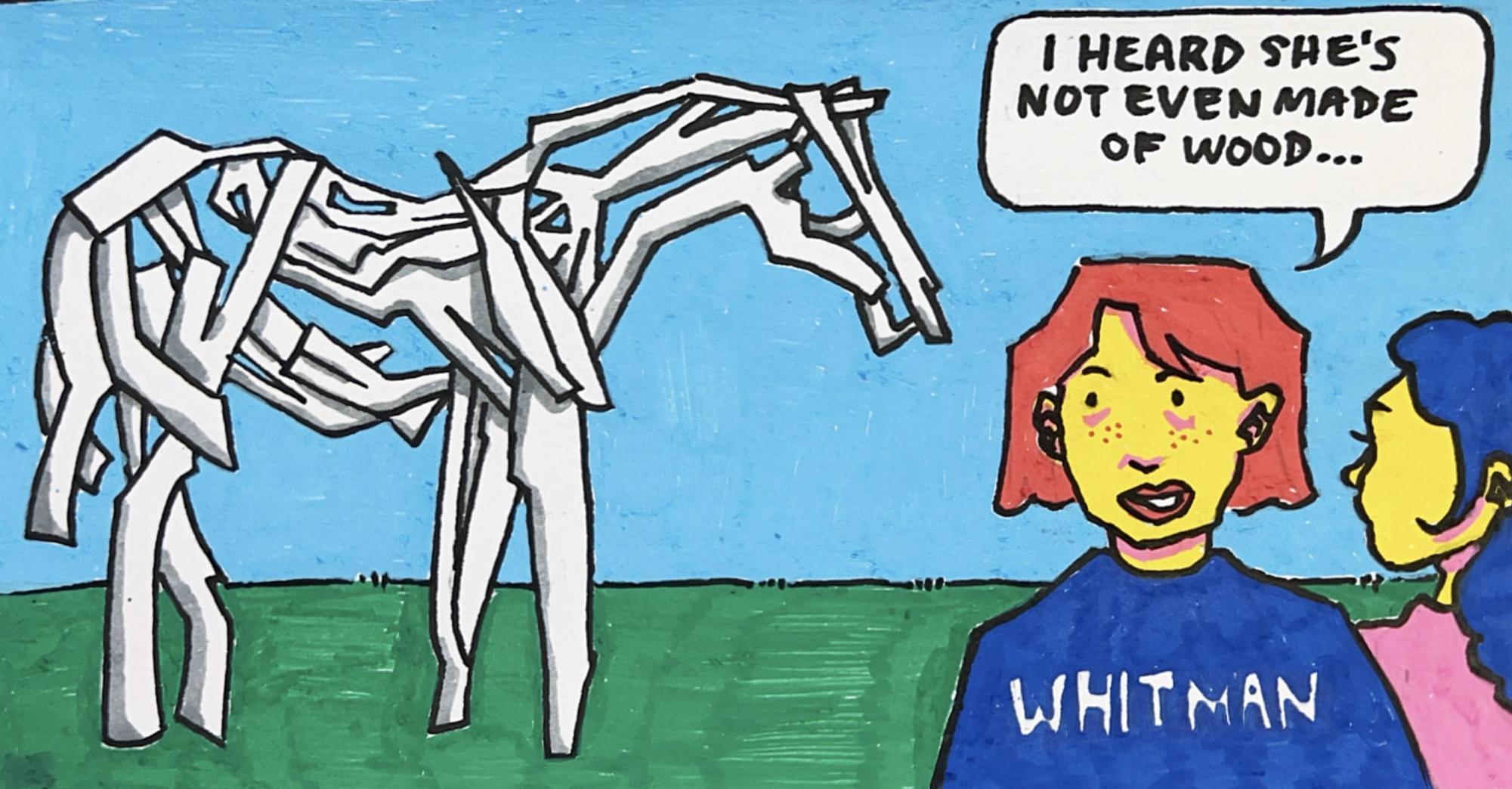
According to Whitman users on Yik Yak, ?? admitted to roofieing multiple women on social media. Other posts claim a fraternity member showed up to a party with COVID-19. Another suggests a faculty member harassed female students.
Yik Yak is an online social media platform where community members can post anonymously. It forbids the mention of specific names in posts, so users find coded ways to gossip about people. Typically it’s with emojis or by censoring names [e.g. L*ly]. ?? is the most recent thread of gossip traveling through the Whitman grapevine. If the pattern tracks, his relevance will fade quickly. Something else will take over.
Cameron Adams’* name dominated Whitman Yik Yak posts at several points last year. Sometimes with emojis, other times with an asterisk. Their name still pops up occasionally.
“I wouldn’t say I’m public enemy number one. But I do think it’s popular to hate on me at the moment,” Adams said.
Gossip is a big part of the culture at Whitman. Sometimes it’s a warning of who poses a threat to the community (like ??). It can be helpful, but it’s also a slippery slope. Students latch on to rumors, desperate to hear and share secret intel. A lot of the time these rumors are exaggerated. Or completely false. But this doesn’t dull its impact; it can sharpen it.
“People would say things that weren’t true. And at first it was kind of funny, because I was like, ‘you think this thing about me? That’s ridiculous because I’ve done ten things to the contrary.’ But it got to the point where I would have people come up to me and be like ‘oh my God, you’re [Cameron]. Everyone hates you.’ And that’s not a very nice feeling,” Adams said.
Whitman students are quick to accept rumors as fact. It adds excitement when the routine of classes and small town life sets in. It gives color when life feels gray. But if your name is the one being whispered, anxiety and depression can become consuming. For Adams, their days started to feel unlivable.
“During that week I was so fucking depressed. I really almost killed myself,” Adams said. “It felt like everyone on campus thought that I was a genuinely bad person. And that no one could articulate why. It was just a feeling. And that was the worst part, because that’s your worst anxiety coming true—even though you haven’t done anything, per se, people can just tell that you’re secretly evil.”
Coming from a big city, gossip culture at Whitman was a shock. Stories that seemed insignificant to me took hold of conversations. Gossip became an integral part of social life in a way I had never experienced before in high school or in middle school.
Associate Professor of Sociology and Department Chair Alvaro Santana-Acuña is teaching a class on big data that explores how information spreads. According to Santana-Acuña, gossip operates differently in smaller communities.
“We can think of gossip as a ritual. When we share gossip we feel that we either share a connection with that person, or we want to create a connection with that person,” Santana-Acuña said.
Santana-Acuña explained how gossip is a way to bond with the people around us. If I share private information with someone, it indicates a level of trust. The information feels private and exclusive. By sharing it, I make the other person feel special. Gossiping is a means to strengthen a bond.
“If we already have a connection, one of the ways in which I show my loyalty to you is by sharing this information. It performs a very important role in terms of strengthening or creating ties among people,” Santana-Acuña said.
Despite Adams’ negative experience with gossip, they admitted to participating in it at Whitman.
“Over time, I acclimated to it. I’m a little bit of a gossip now too. I catch myself saying not very kind things about people behind their backs, and it never feels good. But for some reason you keep doing it. And I think part of it is the culture,” Adams said.
Gossip becomes the currency of connection at Whitman. It’s an easy ticket to social relevance. The allure lies in the exclusivity of information; the feeling of being entrusted with secrets that paint a more vivid picture of the people around us.
Divulging the latest drama feels exciting, but students need to remember that real people exist behind these stories. They’re not just characters in a tale, but people trying to find their place at a school that’s quick to label people in ways that can cost lives.
*Cameron Adams is a pseudonym used to protect the individual’s anonymity.
